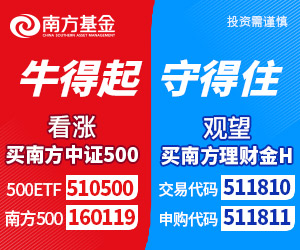Third annual Hologic Global Women’s Health Index shows billions of women untested for life-threatening conditions, emotional health worsening and nearly 1 billion women living with physical pain.
Taiwan tops rankings of women’s health by country/territory; U.S. falls to number 30.
DAVOS, Switzerland--(BUSINESS WIRE)--The world faces an emergency in women’s health even as the COVID-19 pandemic wanes, according to one of the largest annual updates on women’s well-being — the Hologic Global Women’s Health Index.
Women’s health innovation company Hologic, Inc. (Nasdaq: HOLX) partners with Gallup to create the Index, which in its third year shows that billions of women are not getting tested for potentially life-threatening conditions. The Index also shows that more women are sad, angry and worried now than at the height of the pandemic. Many young women don’t feel safe walking alone in their communities at night, and nearly 1 billion women spend a lot of their day in physical pain.
This year’s Index will be released today at the World Economic Forum in Davos, Switzerland. The launch event was convened by Goals House, a community that comes together at significant global moments throughout the year to drive progress toward the United Nations (UN) Sustainable Development Goals (SDGs).
The Index fills a critical gap in knowledge about the health, safety and well-being of women worldwide. Based on interviews with more than 147,000 women and men in 143 countries and territories, it represents the voices of 97% of the world’s women and girls aged 15 and older.
“The new Index findings make it exceedingly evident that, as countries emerge from the COVID-19 pandemic, women’s health remains in a state of emergency,” said Stephen P. MacMillan, Chairman, President and CEO of Hologic. “It’s time for world leaders to take a bolder stand for women and girls. Investing in women’s health not only benefits individual women, but also their families, communities and economies.”
Key findings from this year’s Index:
-
Testing for major health conditions remains low. Most women didn’t receive key tests in the past 12 months, meaning that billions of women went untested for potentially life-threatening conditions:
- Only 36% were tested for high blood pressure — a major risk factor for heart disease and stroke.
- 19% were tested for diabetes, a leading cause of death for women.
- 11% were tested for any type of cancer.
- 10% were tested for a sexually transmitted disease or infection (STD/STI) — leaving nearly 2 billion women of reproductive age at risk of infertility, increased maternal and fetal mortality, and deadly diseases.
- Emotional health is worsening: More women say they are sad, angry and worried now than three years ago. About 4 in 10 women experienced worry and stress during a lot of the previous day, and women are more likely than men to report feeling these emotions. For example, women are 20% more likely than men to say they experience sadness daily.
- Other striking findings:
- Physical pain is a significant problem. Nearly 1 billion women worldwide spent a lot of the previous day in physical pain.
- Housing challenges continue. The percentage of women struggling to afford shelter has increased by more than half in the last decade.
- Young women don’t feel safe. Many women, including more than 4 in 10 young women aged 15 to 24, do not feel safe walking alone at night.
Based on survey responses, the Index assigns a women’s health score to each country or territory. Taiwan led the world for the third consecutive year, scoring 72 out of a possible 100. Other top scores went to Kuwait (68), Austria (67) and Germany (67). The lowest scores went to the Democratic Republic of Congo (36), Sierra Leone (34) and Afghanistan (26).
The United States fell seven places from its ranking in the second year of the survey to number 30, on par with Kazakhstan. The United Kingdom and France both scored 60, a few points above the global average.
“The Index serves as a wake-up call that improving women’s health needs to be a top priority. If we follow the roadmap set out in this Index, we can meaningfully improve the health and well-being of women for generations to come,” said MacMillan.
This year’s Index report includes country spotlights, including case studies on what is working well. South Korea is a consistent leader in cancer testing, and after recent prioritization, Costa Rica is among the top countries for blood pressure testing.
To see the full Index and related resources, visit WomensHealthIndex.com.
About Hologic, Inc.
Hologic, Inc. is a global medical technology innovator focused on improving the health and well-being of women, their families and communities through early detection and treatment. Its advancements include invention of the world’s first commercial 3D mammography system to find breast cancer earlier; leadership in testing for cervical cancer, sexually transmitted infections and respiratory illnesses; and minimally invasive surgical technologies for uterine fibroids and abnormal uterine bleeding.
About Gallup
Gallup delivers analytics and advice to help leaders and organizations solve their most pressing problems. Combining more than 80 years of experience with its global reach, Gallup knows more about the attitudes and behaviors of employees, customers, students and citizens than any other organization in the world.
SOURCE: Hologic, Inc.
责任编辑: admin
珠海都市网所有文字、图片、视频、音频等资料均来自互联网,不代表本站赞同其观点,本站亦不为其版权负责。相关作品的原创性、文中陈述文字以及内容数据庞杂本站无法一一核实,如果您发现本网站上有侵犯您的合法权益的内容,请联系我们,本网站将立即予以删除!

焦点新闻
热图要闻
热门排行
- PLDA宣布推出Robust Verification Toolset,以提
- Ludovic Blanquet Joins smartTrade as Chief Pro
- Wolters Kluwer FRR Launches OneSumX for Risk M
- 香港旅遊發展局訂立統一衞生防疫指引 向旅客傳遞
- Nanboya香港辦事處遷至佐敦,首個海外採購辦公室
- GSMA Announces Date Changes for its MWC21 Seri
- 罗克韦尔自动化收购网络安全公司
- Standard Digital Group Is Now Accepting Online
- Nanboya香港辦事處遷至佐敦,首個海外採購辦公室
- Standard Digital Group Is Now Accepting Online







